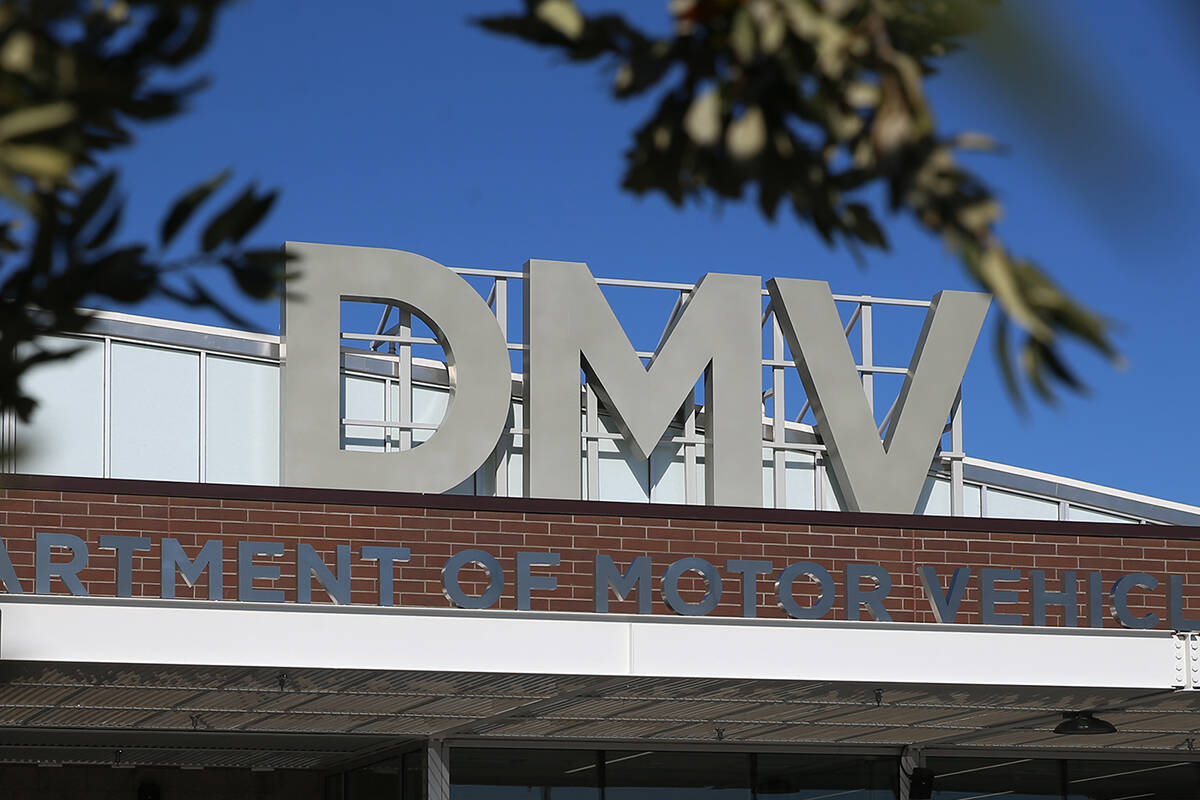DMV upgrade could cost Nevada extra $300M amid rollout woes
The modernization of the Nevada Department of Motor Vehicles’ computer system could take longer than expected and cost the state more than $300 million more than what was previously budgeted.
In late 2021 the DMV began rolling out its system upgrade, dubbed the DMV Transformation Effort, which includes a gradual rollout of online service offerings, at a cost of $125 million. The initial goal was to offer online access for the majority of the DMV transactions now available in person by the end of 2026 to help eliminate the need for in-person visits.
The DMV now says the process may take until the 2029 fiscal year and cost nearly $425 million, Molly Lennon, DMV administrator of research and project management and lead of the transformation effort said during an April meeting of the Legislature’s Interim Finance Committee.
The possible time extension and budget increase are because DMV staff lacks the bandwidth to both carry out current operations and implement the new system, forcing the DMV to outsource tasks to outside parties. That help will be needed for a longer period of time, through fiscal year 2029 instead of the originally planned fiscal year 2026, according to DMV spokesman Sean Sever.
“It’s not a delay,” Sever said Monday in an email. “We just thought we could roll off our contractors (contracted IT specialists in several different IT areas) in 2026, leaving DMV IT staff to continue enhancements to our new system. … We are seeing now as a bigger lift with longer support needed, but our project will still roll out what we thought and when. We just need the support for a longer period.”
The public won’t notice the change, and new online products will still be rolling out, Sever added.
The DMV is still vetting the process and they are engaged with staff internally to see what skill sets they have to counterbalance the additional $300 million potentially needed — a total Sever likened to being the worst-case scenario.
The development comes after DMV representatives told lawmakers during a March meeting of the joint interim standing committee on growth and infrastructure that they were on time and on budget with the project.
“Frankly it’s very, very surprising to me,” Assemblyman Howard Watts said of the potential for the rollout to take longer and cost more.
The original plan was to continuously roll out new online features every six to eight weeks, but with the issues encountered with staffing and implementing the new system, the planned releases will not be as continual as hoped, according to DMV Director Tonya Laney.
“What we’ve seen is, it’s going to take us longer to build some of the components,” Laney said during the April meeting. “So it’s not truly incremental like we had originally planned. But we are still releasing incrementally, where it makes sense, where we can.”
The next rollouts planned for this year include accepting documents for some registration and permit transactions online, Laney said.
Watt also noted that lawmakers had previously expressed concern over the initial four-year rollout schedule announced by the DMV at the start of the program.
DMV officials in 2020 brought in an outside party to conduct an independent assessment to create a blueprint for the project. The result of the assessment was a recommended eight-year process, but DMV officials at the time pushed for an aggressive four-year process.
“Through our planning efforts, we have come to the realization that our original estimate of eight years for the bulk of our project initiative was more accurate,” Laney said. “Although we had good intentions with challenging our team and vendor partners, to make this happen in four (years), it is apparent that our eagerness on all sides to make this happen is not enough to carry the weight of a project of this magnitude.”
Contact Mick Akers at makers@reviewjournal.com or 702-387-2920. Follow @mickakers on X.

















